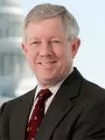In Short
The Situation: Section 230 of the Communications Decency Act of 1996 gives technology companies immunity from liability for content hosted on their networks while recognizing their ability to restrict content they deem inappropriate.
The Result: As lawmakers weigh the lessons of recent elections and the role of technology companies in transmitting political speech and reported misinformation, Section 230 is the subject of intense criticism and possible reform in Washington, D.C.
Looking Ahead: Washington lawmakers are pressing Section 230 reform proposals that could impact the liability protections afforded to technology companies, while seeking to preserve the ability of those companies to host the open and free-flowing discussions that are essential to the democratic process.
Section 230
Section 230 gives providers of technology companies two important liability protections.
First, they cannot be held liable for content that a third party posts on their platforms, effectively barring suits against technology companies for defamation, negligence, and violations of state antidiscrimination laws.
Second, they cannot be held liable for filtering or restricting obscene or otherwise objectionable material, nor can they be held liable when they choose not to filter or restrict this material.
These two provisions shield technology companies from lawsuits seeking to hold them liable for content hosted on their networks. They are traditionally seen as being instrumental to the rise of a free and open internet and vibrant online economy and media environment in the United States in the quarter century since Section 230's enactment. Yet now the framework established by Section 230 is coming under new and sustained criticism, including from emerging left–right coalitions of lawmakers and policy analysts.
Criticisms
Section 230 has been criticized for two main reasons.
First, critics argue that, even though Section 230 permits technology companies to restrict harmful content such as child pornography, hate speech, misinformation, and terrorist activity, the liability shield provided by Section 230 fails to incentivize technology companies to adequately carry out these functions.
Second, critics argue that by permitting technology companies to censor "violent, harassing, or otherwise objectionable" material, Section 230 is providing a pretext to technology companies to censor unpopular political views on the internet.
Last year, Supreme Court Justice Thomas joined the chorus of critics, observing that "many courts have construed the law broadly to confer sweeping immunity on some of the largest companies in the world," and calling on the Supreme Court to "consider whether the text of this increasingly important statute aligns with the current state of immunity enjoyed by Internet platforms." More recently, he noted how "applying old doctrines to new digital platforms is rarely straightforward" and questioned whether the power to regulate speech on private digital platforms "could lawfully be modified."
Reform Efforts
Washington lawmakers have turned these criticisms into ideas for reform with several legislative proposals aimed at "fixing" Section 230, while seeking to preserve the underlying goal of promoting robust debate and viewpoints on the internet.
For example, Senators Schatz (D-HI) and Thune (R-SD) introduced the PACT Act to require platforms to issue transparency reports and remove content within four days of a court determination that the content is illegal.
More recently, Senators Warner (D-VA), Hirono (D-HI), and Klobuchar (D-MN) introduced the SAFE TECH Act to limit the scope of immunity for paid content and permit actions under civil rights laws; antitrust laws; stalking, harassment, or intimidation laws; human rights law; or civil wrongful death statutes.
Four Key Takeaways
- Section 230 shields technology companies from liability for hosting third-party content on their platforms.
- Section 230's liability shield has been criticized for failing to prevent illegal and offensive activity online and allowing the suppression of political speech on the internet.
- Notwithstanding the change of presidential administrations, Washington lawmakers appear eager to reform Section 230.
- Technology companies should actively monitor and engage with these initiatives to help lawmakers identify solutions that help to remedy the shortcomings in Section 230, while preserving the legal protections that enable internet platforms to host the "virtual town squares" that facilitate free and open public debate.
The content of this article is intended to provide a general guide to the subject matter. Specialist advice should be sought about your specific circumstances.




